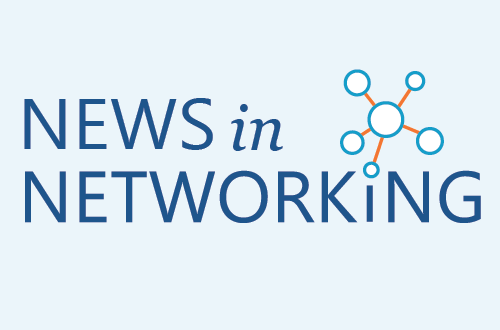News in Networking: Internet v. Hate, DDoS Waves, and a $300M Cyber Hit

Summary
Web companies put the brakes on hate group Daily Stormer using their services. The EFF responded with a warning. A new DDoS attack known as “pulse wave” was uncovered. DDoS attacks hit a bunch of Blizzard Entertainment games. And the biggest shipping company said a single attack cost it nearly $300 million.
This week’s top story picks from the Kentik team.

Here are those headlines and more:
- Cloudflare CEO Opens Up Far-Right Website to DDoS Attacks (Gizmodo) Cloudflare CEO Matthew Prince made the executive decision to end DDoS attack support for the alt-right website The Daily Stormer. “This was my decision. This is not Cloudflare’s general policy now, going forward,” Cloudflare CEO Matthew Prince told Gizmodo. “I think we have to have a conversation over what part of the infrastructure stack is right to police content.” The EFF responded to say, “We would be making a mistake if we assumed that these sorts of censorship decisions would never turn against causes we love.”
- ‘Pulse Wave’ DDoS Attacks Emerge As New Threat (Dark Reading) Research from security firm Imperva reveals a new type of DDoS attack, where “short but successive bursts of attack traffic” are a clockwork attempt to take down targets.
- World of Warcraft, Overwatch, Hearthstone, Other Games Hit by DDoS (SC Magazine) Blizzard Entertainment has been no stranger to DDoS attacks over the years. This week the gaming giant said the attack hit its servers hosting popular World of Warcraft, Overwatch, Hearthstone and other games.
- Maersk Estimates $300M Loss from Cyber Attack (Wall Street Journal) What’s the cost of a cyber attack on your business? If you’re the world’s largest shipping company, it’s about $300 million. That’s how much A.P. Moller-Maersk said it lost with an outage caused by a recent attack.
- Verizon to Fund Own Emergency Services Network (TotalTelecom) Following AT&T’s FirstNet plans, Verizon announced it also intends to roll out a new services network for first responders to use in the event of an emergency.
- MIT’s New AI Prevents Streaming Video from Buffering (Engadget) A new neural network built by researchers at MIT aims to stop buffering and pixelation on streaming video once and for all. The AI-based system “automatically adjusts video quality based on network conditions,” according to Engadget.
- London Maintains Lead in Network Capacity Ahead of Brexit (Bloomberg) London’s private network capacity can do a bandwidth of 159 terabytes per second, according to a report from data center provider Equinix. That ranks the city ahead of New York City, Frankfurt, and many others’ capacities. Bloomberg reminds, “Businesses are turning to private data networks due to the huge amounts of data they are now generating.”
- GitHub Seeks to Spur Innovation with Kubernetes Migration (ZDNet) Deploying Kubernetes clusters that run application containers isn’t easy, according to GitHub. However, the company did it to “allow for faster innovation on the online code sharing and development platform,” reports ZDNet. In separate GitHub news, the company’s CEO, Chris Wanstrath, announced this week that he is stepping down.
- Increasingly Complex Algorithms That Get Packages to Your Door (MIT Tech Review) “If you had to hand-deliver 50 packages, how would you go about planning the best route?” The answer is not easy, according to MIT Tech Review, which tried to get input on the topic from some of the biggest delivery companies. This feature story discusses the algorithms that aim to simplify the process.
- Hughes Signs Deal to Launch 100Mbps Satellite Internet Service in 2021 (Ars Technica) Hughes Network Systems “is planning for its next major leap in bandwidth—a 100 Mbps-capable network based on a new satellite to be launched in 2021.” Ars Technica explains how Hughes plans to do it.
Until next week, follow us on Twitter and LinkedIn to see more of these headlines in real time.
